The dress rehearsal has unearthed more problems
than solutions ahead of next year's World Cup finals, as Goal's
reporting team in the host cities discovered
SPECIAL REPORT
In Brazil: Greg Stobart, Kris Voakes, Eric Gomez & Luiz Moura
The Confederations Cup comes to a close on Sunday with the final that Fifa, and much of the viewing public, would have wished to see. But while Brazil versus Spain in the Maracana represents the dream setting that the governing body would dearly love to see repeated in the summer of 2014, the tournament has produced a host of concerns that will require swift resolution before the true eyes of the world are upon them.
Goal's team of reporters, covering the tournament from all of the host cities, have witnessed the logistical and political issues that have made this event as memorable for issues off the pitch, as the stunning goals on it.
| SECURITY |
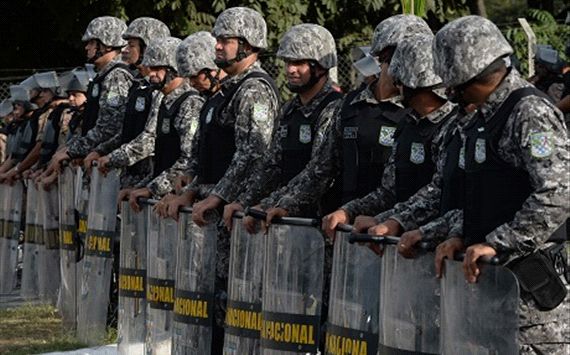
The streets of Brazil's major cities have felt safe to walk during the tournament, but locals are angered that the massive police presence on the streets is absent on a normal day. Their stories are somewhat more cautionary, claiming they would usually hail a taxi to travel as little as 200 yards after dark.
When the anti-government protests commenced, initially the security response was regimented and organised, allowing demonstrators to make themselves heard.
Yet as the events have taken a more hostile tone, so has the police reaction. Last week, as 300,000 people marched through the centre of Rio, the repercussions were hails of rubber bullets and tear gas. It represented a loss of control from a police perspective, and newspaper front pages the next morning condemned the escalating unrest.
And while Brazil booked their place in the final on the pitch in Belo Horizonte on Wednesday, they did so against the backdrop of tear gas emanating into the stadium as police and the public again clashed outside.
As the World Cup edges closer and the protests show no signs of abating, Fifa will want to know how the Brazilian government will ensure the safety of fans, players and staff.
| POLITICS |
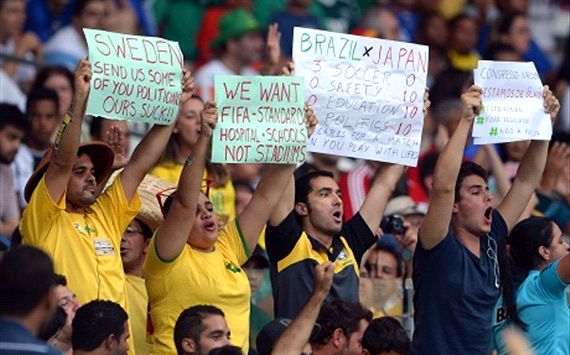
Fifa could never have imagined that Brazilians, football fans without condition, would react as violently to hosting a tournament as they have in the past two weeks.
It began with bad timing; the Confederations Cup commenced immediately after several local governments had raised bus fares, giving people a cause to march against.
In just a few days, protesters added a multitude of other issues to their agenda. The fight against corruption, against unpopular projects soon to be voted into congress, and against the amount of public money spent in building stadiums, without the previously promised improvements in the cities, all became part of the debate. This feeling of dissatisfaction has been clear in all the protests organised on matchdays, almost all of which culminated in violent confrontations.
The fear now is that groups connected to controversial political figures could rise and take advantage of the general instability. Next year's World Cup takes place only three months before the elections for president, governor and congress.
However, Fifa can root for one particular outcome, as secretary general Jerome Valcke observed - if Brazil win the Confederations Cup, it will imbue a degree of calm in the nation.
| STADIA |
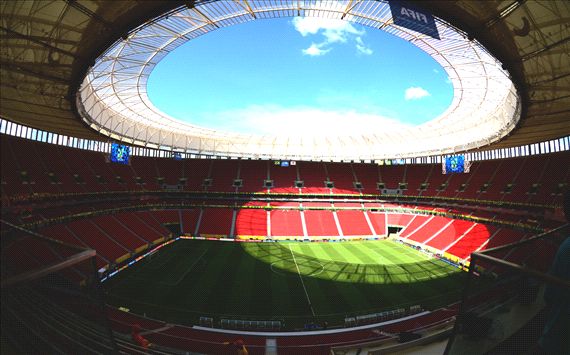
The arenas may have looked spectacular on TV, but the matchday attendee has had a fair bit to negotiate before taking up their seat.
In Brasilia, the first-class stadium bowl belies the chaos behind the scenes. The Estadio Nacional, which will be home to a fourth-division club by the time the World Cup is over, has distinctly fourth-division surroundings and organisation. Slightly to the north-west of the town centre, its approach consists mainly of dirt tracks and pebbled car parks and walkways.
Elsewhere, Salvador's Arena Fonte Nova is surrounded on all four sides by run-down favelas, leaving locals with a constant reminder of where government money has been spent.
In addition, the stadium surroundings remain far from complete. In Salvador, cones directed vehicles into a new traffic-flow system which has yet to be completed, while a road outside one of the main entrances was being tarmaced on the afternoon before Nigeria and Uruguay squared off in the stadium's opening fixture.
The Mineirao in Belo Horizonte has at least retained much of the feel of a true Brazilian experience. It lies on the outskirts of the city, but that is one of its only downsides. And, of course, it is ready. The World Cup will be a better place with more arenas like it.
| TRANSPORT |
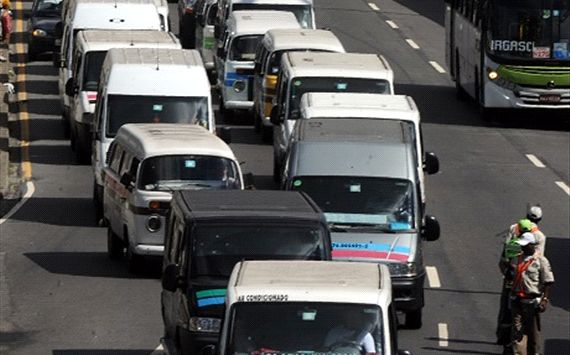
Uruguay captain Diego Lugano perhaps said it best when asked about logistical issues ahead of his side's semi-final against Brazil, stating simply: "Brazil is a country with a lot of traffic. That's just the way it is."
Public transport can certainly be better. In Brasilia, there are
only two metro lines, and even then both service the same route until 20
kilometres away from the centre of town. Belo Horizonte, meanwhile, has
just one line and Salvador has no such mode of transport. Taxis are
plentiful in all three cities, but come at a cost.
The bus is by far the most common mode of public transport, the reason why price increases sparked the initial disorder. But given the clogged roads, it is also the slowest. The traffic in and around the arenas, almost without exception, is an ordeal to negotiate.
The bus is by far the most common mode of public transport, the reason why price increases sparked the initial disorder. But given the clogged roads, it is also the slowest. The traffic in and around the arenas, almost without exception, is an ordeal to negotiate.
Rio's transport network is far more advanced than in other Brazilian cities, in no small part down to the fact that the city will also host the Olympics in 2016. Three metro stations serve the Maracana, with trains at regular intervals and the subway - which is clean, air-conditioned and privately owned - free to use for ticket-holders.
| PEOPLE |

As anyone lucky enough to attend a home nation fixture during this Confederations Cup will attest to, the Brazilian torcida is a spectacle all of its own. The passionate singing of the national anthem truly inspires goosebumps.
Fans attending the matches are well aware of the protests, but their focus is plainly on football. When asked, most share the view that the political statements are healthy and ultimately positive, but that the associated violence will lead nowhere.
The warmth and willingness of locals to strike up a conversation with anyone they perceive to be a non-Brazilian is welcoming, and they know that the Confederations Cup is serving as their preview to next year's main event. A Brazilian win in the final on Sunday may go some way to appeasing those in opposition to the merits of bringing the World Cup home for the first time since 1950. --------------------- goal.com
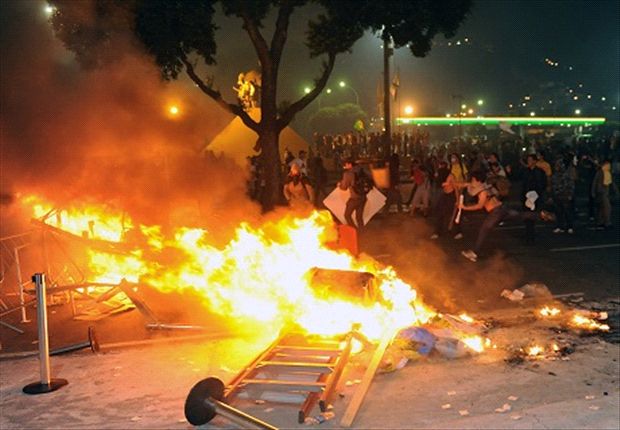
No comments:
Post a Comment